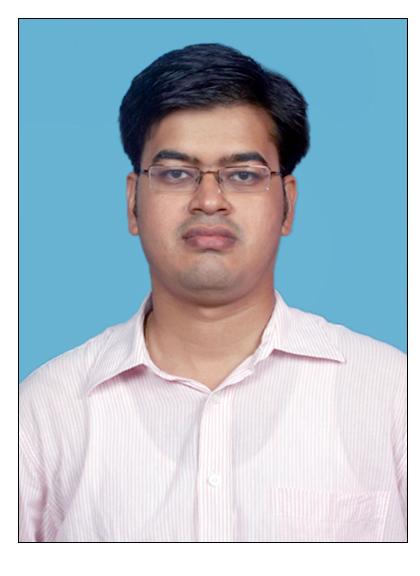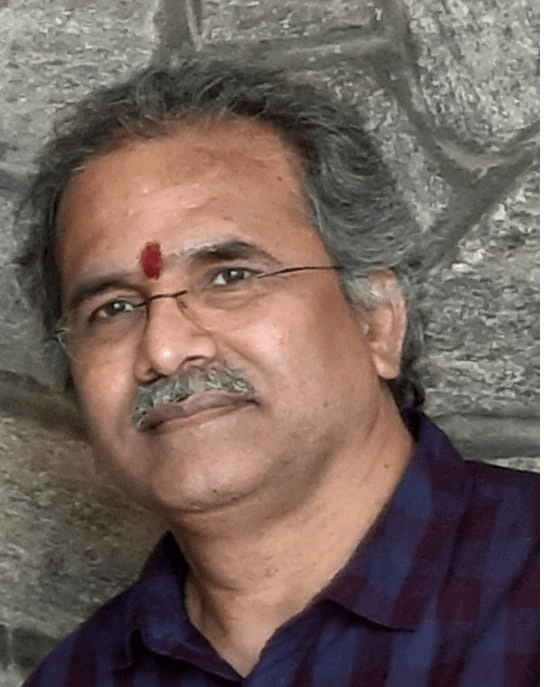Project
Research Areas/Problems
Any practical (data-driven) problem can be modeled using the following broadly classified areas in mathematics:
Statistics (classical or Bayesian)
Differential equations (Deterministic or Stochastic)
Optimization or Game theory
Computational mathematics
It may also need expertise from all the areas listed above. At present, we have an expertise in these areas, and with this proposed center, we can increase our collaboration with industries and an academic world which in turn has potential to produce cutting edge research and new theories in mathematics along with a practical (mathematically viable) solution to a data-driven problem.
Expected deliverables of the research
Keeping this wide spectrum in mind, the center will strive to achieve the following goals
Data-Driven Mathematical Modelling. Develop the models using data that will be mathematically viable. Once the viability of the model is established, use/design theory to establish the existence and uniqueness/nonuniqueness of the solution. In case, the solution to the problem is unique the optimality is assured, otherwise find the most optimal solution among the set of available solutions to the problem.
Human Resource Development. Organize short term courses on these topics to spread awareness in the academic neighborhood. Develop human resources through our academic programs for the demand in this field. Start MOOC based certification programs for Data Scientists, Data Analysts, and related fields.
Continuous Upgradation of Skills and Industry-Academia Connect. Organize international/national meetings among the world mathematics community to update and share our knowledge about data-driven mathematical modeling. Resolve the problems faced by the industry.
Current status
Collaborations
International Collaborations
Prof.Dr. Axel Klar link
Dr. Sudarshan Tiwari link
Prof. Thomas Goetz link
Prof. Agnieska Wylomanska link
Prof. Jorg Kuhnert link
Prof. Vydas Cekanavicius link
Prof. Nicolas Privault linkSocietal impact
Technical/ Scientific Progress
New work done in the project
Estimation procedures for VARMA with stable noise is established.
Estimation procedures for PAR(1) with stable noise is develped.
A mathematical model governing the short-range transport of microplastic particles in a lid-driven cavity with an obstacle is established.
Numerical methods for particle Agglomeration and breakage in lid-driven cavity ows at low Reynolds numbers are derived.
Methodology for Transport of ellipsoidal microplastic particles in a 3D lid-driven cavity under size and aspect ratio variation is developed.
A theory on Bifurcation, uniqueness and multiplicity results for classes of reaction diffusion equations arising in ecology with nonlinear boundary conditions is developed.
Infrastructure developments
We have upgraded Department Computing Facility with new furnture and computing nodes. (5 PCs, 1 Server class machine, 4 Server class machines (yet to come)).
Output
A mathematical model governing the short-range transport of microplastic particles in a lid-driven cavity with an obstacle. Communications in Nonlinear Science and Numerical Simulation (S. Sundar, Nityananda Roy, Thomas Goetz and K.W.Putra).
Fractional lower-order covariance (FLOC)-based estimation for multidimensional PAR(1) model with α−stable noise, International Journal of Advances in Engineering Sciences and Applied Mathematics, Springer,link (S. Sundar, Agnieszka Wylomanska and Prashant Giri).
Numerical methods for particle Agglomeration and breakage in lid-driven cavity ows at low Reynolds numbers, Mathematics and Computers in Simulation,(S. Sundar, Robert Duerr, Andreas Bueck, Jitendra Kumar, Nityananda Roy)
Transport of ellipsoidal microplastic particles in a 3D lid-driven cavity under size and aspect ratio variation, Applied Mathematics and Computation, (with Nityananda Roy, Thomas Goetz and K.W.Putra)
Bifurcation, uniqueness and multiplicity results for classes of reaction diffusion equations arising in ecology with nonlinear boundary conditions, Communications on Pure and Applied Analysis. doi: 10.3934/cpaa.2021195 (S. Sundar, Mohan Mallick, Sarath Sasi, Ratnasingham Shivaji).
Estimation of the parameters of vector autoregressive moving average (VARMA) time series model with symmetric stable noise. Int J Adv Eng Sci Appl Math 13, 206–214 (2021). Join (Sathe, A.M., Chowdhury, R. & Upadhye, N.S.)
Special issues on the topic “Time Series Modeling, Data Science and Statistical Learning” have been brought out in the International Journal of Advances in Engineering Sciences and Applied Mathematics, Volume 13, Issues 2 -3, September 2021, Springer. (Guest Editors: Prof.S.Sundar, IIT Madras, Prof.Agnieszka Wylomanska, WUST, Poland and Prof.Januz Gajda, University of Warsaw, Poland.
Mobility
Visits planned for PI, co-PIs, international collaborators and students (both inbound and outbound)
Relationship
Industrial Engagement
We will soon receive two projects from MPM Private LTD. Also, received on CSR Project form the same company.
University Engagement
Joint PhD Degree Memorandum of Understanding (MoU) between IIT Madras and TU Kaiserslautern, Germany has been signed in the month of December 2021 by the Director of IIT Madras and President of the TU Kaiserslautern for the student Ms.A. Parveena Shamim (MA17D003) jointly guided by Prof.S.Sundar of IIT Madras and Prof.Axel Klar of AG Technomathematik, TU Kaiserslautern, Germany.
Updates
Relevant Updates
Ph.D.s Awarded
Dr. Nityananda Roy, MA16D018, “Modeling Studies on the Transport of Particles in Fluid”, September 2021. (Guide: Prof.S.Sundar, IIT Madras, Co-Guide: Prof.Thomas Goetz, University of Koblenz-Landau, Germany).
Dr. Prashant Giri, MA16D038, “Estimation of Multidimensional Autoregressive (AR) and Periodic Autoregressive (PAR) Time Series Models with α-Stable Distribution”, December 2021(Guide: Prof.S.Sundar, IIT Madras, Co-Guide: Prof.Agneiszka Wylomanska, Wroclaw University of Science and Technology, Poland).
Dr. Aastha M Sathe, MA15D200, “Estimation Problems related to Stable Distributions”, December 2021 (Guide: Dr. Neelesh S Upadhye, IIT Madras)


